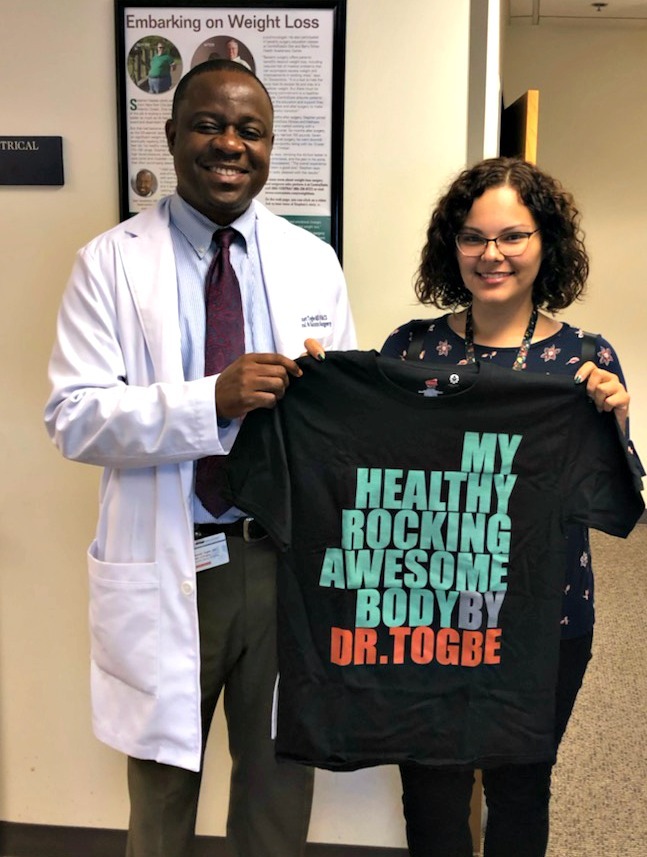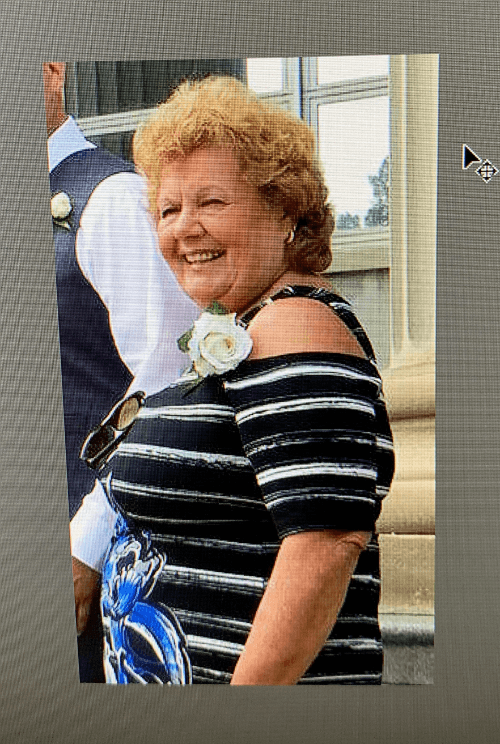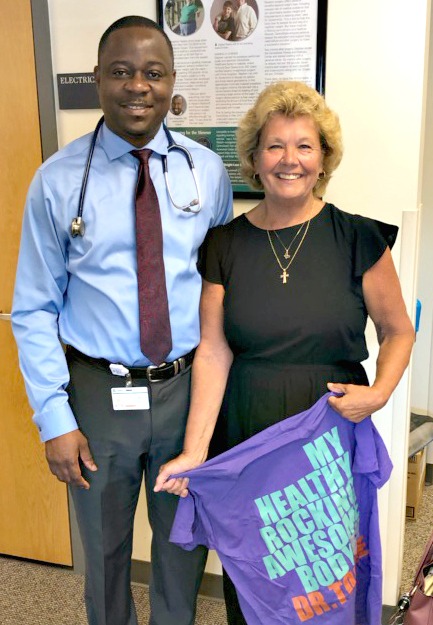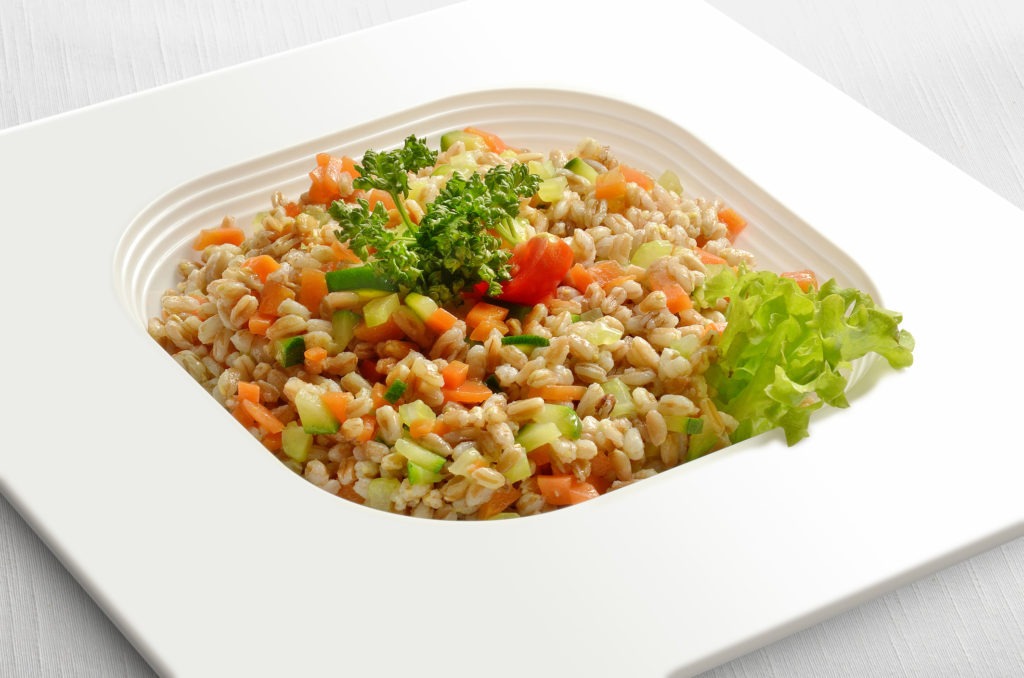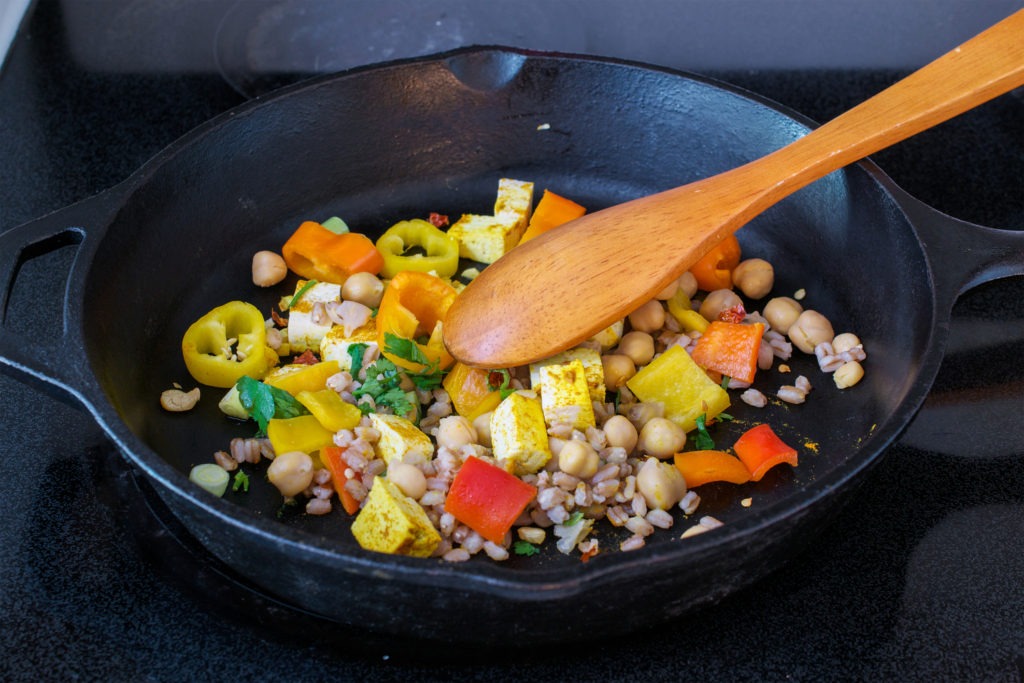
Lori Skurbe, RDN, MPH, CDE
By Lori Skurbe, RDN, MPH, CDE, Bariatric Dietitian, Prime Surgicare
Weight loss surgery is only a tool. Strong commitment to a healthy lifestyle (healthy eating, exercise, mindfulness) is essential to maximize weight loss and keep the weight off for life!
I’ve outlined 12 of my all-time top strategies that I share with our bariatric patients before, during and after they have achieved goal weight:
Make protein a priority
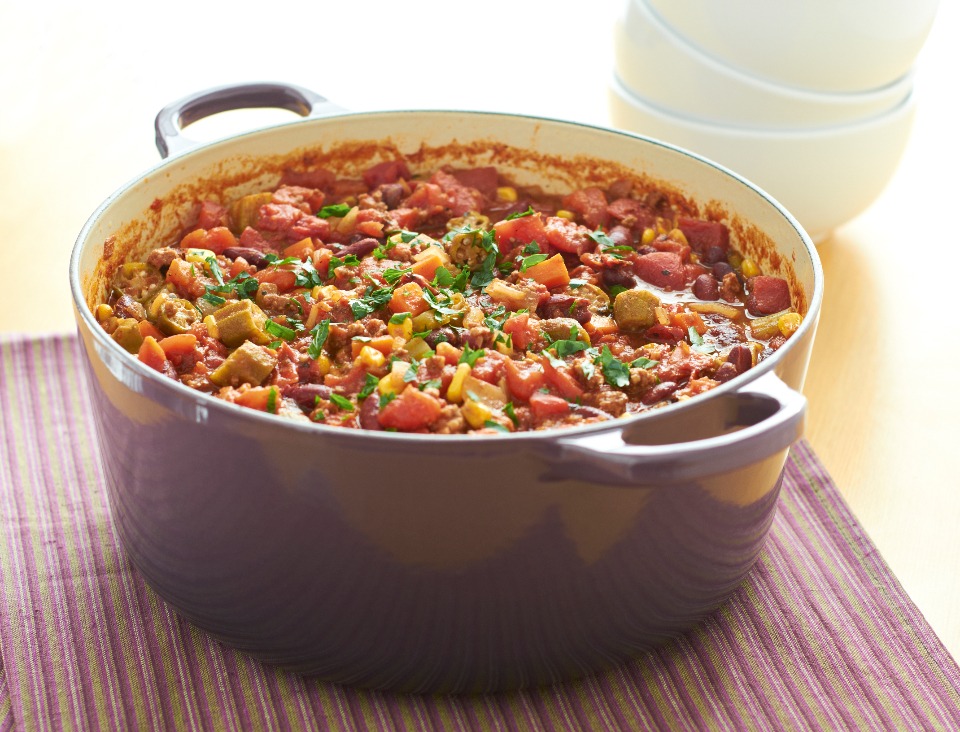
Have a healthy protein source at each meal (or snack) and always eat protein first. Most bariatric patients need between 60-90 grams of protein each day.
Once you’ve eaten your protein, eat non-starchy vegetables. If you have room after the vegetables, eat a healthy carbohydrate.
Refer to the lists of protein, non-starchy vegetables and carbohydrates given at your pre-op nutrition visits or in your post-op diet progression for the best food choices and recommended portion sizes.
Take a picture of our protein list on your phone, so you can quickly refer to it at the grocery store, in restaurants, etc.
The Low Down On Protein Shakes and Protein Powders
Avoid drinks with more than 10 calories per serving (exceptions are approved protein drinks).
- Sip fluids slowly between meals to stay hydrated.
- Aim for 64 ounces daily.
- Water is the #1 beverage of choice.
- Limit or avoid alcoholic beverages.
Do not graze, snack, nibble or nosh
Meals and snacks should have a defined beginning and ending. Once you’re are satisfied – stop eating until the next meal or planned snack.
Do not go back and keep picking at a meal until you finish what is on your plate or snack on various foods throughout the day.
Weight loss surgery patients who graze on various foods throughout the day wind up overeating and do not realize it. This type of eating causes reduced weight loss and frequently leads to weight regain.
Eat slowly, take bites no larger than a dime
Chew each bite until it is mushy (~20-30 chews). Meals should last for about 30 minutes. This is another great way to take control of your food.
Do not eat and drink at the same time
Eating and drinking at the same time can overfill your stomach causing pain, discomfort and make you feel sick.
It can also wash the food out of your stomach pouch – allowing you to feel hungry sooner and possibly eat more.
Avoid distracted eating
When you are eating a meal or snack – just eat! Turn off all screens (TV, computer, phone, etc.) and other distractions. When you only eat, you can focus on enjoying your food, eating slowly and paying more attention to signs of fullness.
Signs of fullness after weight loss surgery can be different than before surgery. Some signs of fullness people experience are: sneezing, burping, hiccupping and/or a runny nose.
Dr. Seun Sowemimo talks about the value of food density on his YouTube channel.
Plan Ahead: Life is busy and can get crazy
Planning your meals and snacks in advance can help you stay on track:
- Pack your meals and snacks to bring to work or school as much as possible.
- Bring your own foods to social events if you aren’t sure what will be served.
- Meal prep on the weekends or days off – so you have meals available to help you continue to lose or maintain your weight loss when life gets hectic.
When you plan and prep your food – you are in control!
Be accountable to yourself
Logging all foods and beverages into a smartphone app, such as Baritastic, can be extremely helpful. An app will help keep track of your protein, calories and other macronutrients, so you know how much you get in each day.
People eat more than they realize, so it is not surprising people who log lose considerably more weight and keep it off more successfully than those who do not!
Keep your appointments with the bariatric surgeon and dietitian so you stay on track.
Make physical activity a part of your new lifestyle

Being physically active helps maintain muscle as you shed excess body fat. Remember: muscle burns calories!
Proper diet, along with physical activity, helps with weight loss. Regular physical activity is also essential to keeping weight off.
Find a physical activity you like to do and aim for 30 minutes daily. If you have orthopedic issues – see a physical therapist for evaluation and discuss fitness alternatives to fit your challenge.
Manage Emotional Eating
Weight loss surgery does not change emotional eating. If you went to food to help deal with emotions before surgery, you will also use food to deal with emotions after.
It is essential to learn new coping skills to deal with emotions in a constructive way.
Enlist the help of a therapist who can help you learn why you emotionally eat and come up with a treatment plan so you can be healthy emotionally and physically.
Take all vitamin and mineral supplements
Yes, it may seem like many pills to take. But every one of them plays a crucial role in optimizing your health—and your weight loss.
Get bariatric blood work done on a regular basis to check vitamin and mineral levels.
The blood work you do for your primary doctor or other specialists is different than the lab tests we need to monitor.
You are at risk for developing vitamin or mineral deficiencies at any point after surgery that is why vitamin and mineral supplements are for LIFE!
Get support! Attend Prime Surgicare’s monthly bariatric support group meetings

WLS patients who attend regular support group meetings are more successful long-term than those who do not.
Enlist the support of friends and family members who empower you to achieve your goals!
Give support, get support. Ask questions, answer questions.
Perfection Not Required
As with all things in life, no one expects you to be perfect all the time.
I encourage our bariatric surgery patients to strive to stay on task 85 to 90 percent of the time.
This way, you are not living a life focusing on deprivation.
Rather, the majority of the time, you are using the tips and tools in your weight loss and weight management arsenal that will keep your weight in check.
If you are 100 pounds or more overweight and have tried traditional weight loss and fitness programs without success, a surgical weight loss solution may be the final solution you need to achieve substantial weight loss.
Call our Bariatric Success Program coordinators at (732) 982-2002 to learn more or attend one of our New (Future) Patient Seminars that I co-host along with Prime Surgicare medical director Dr. Seun Sowemimo and board-certified bariatric surgeon Dr. Bennet Togbe at CentraState Medical Center in Freehold.

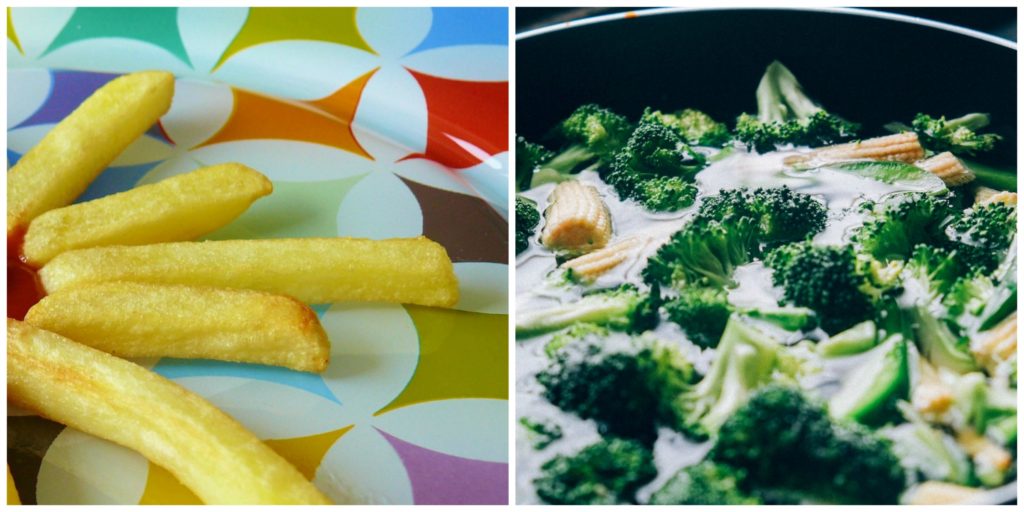
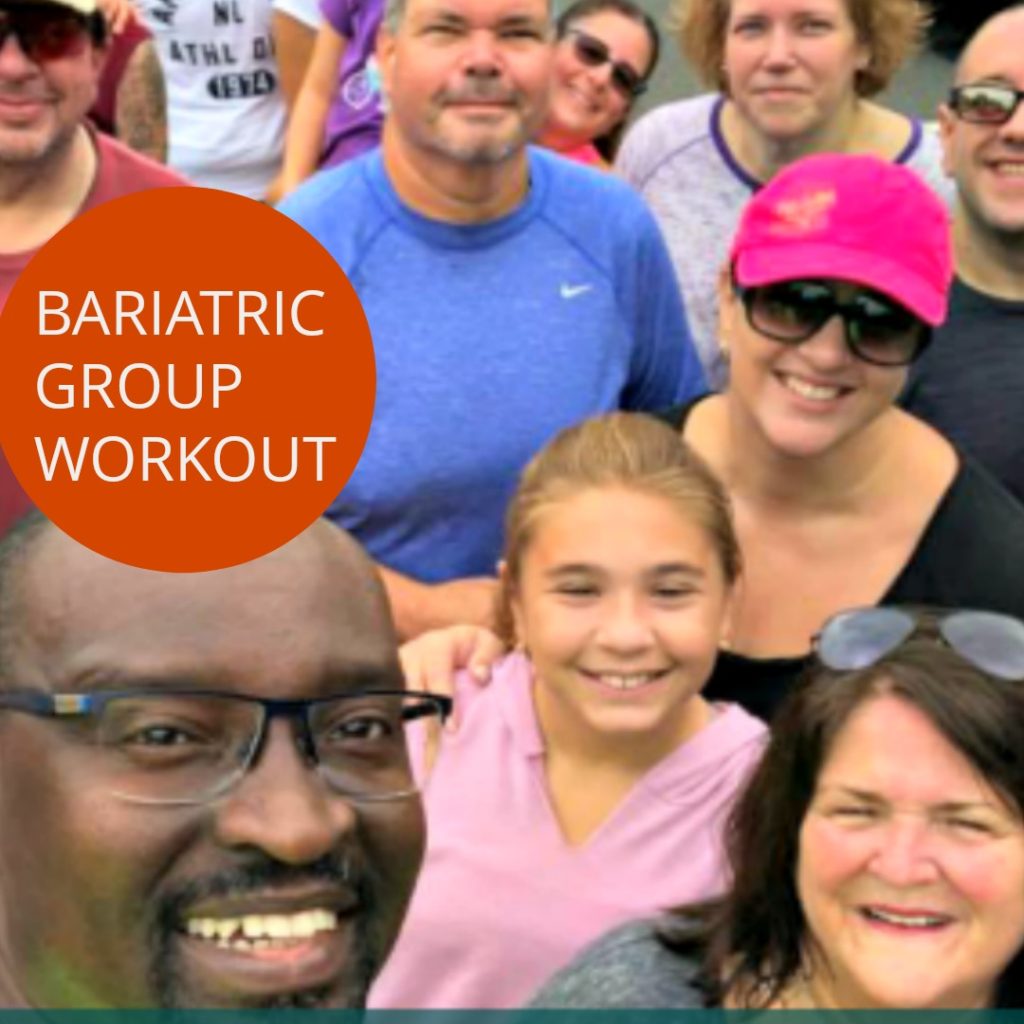
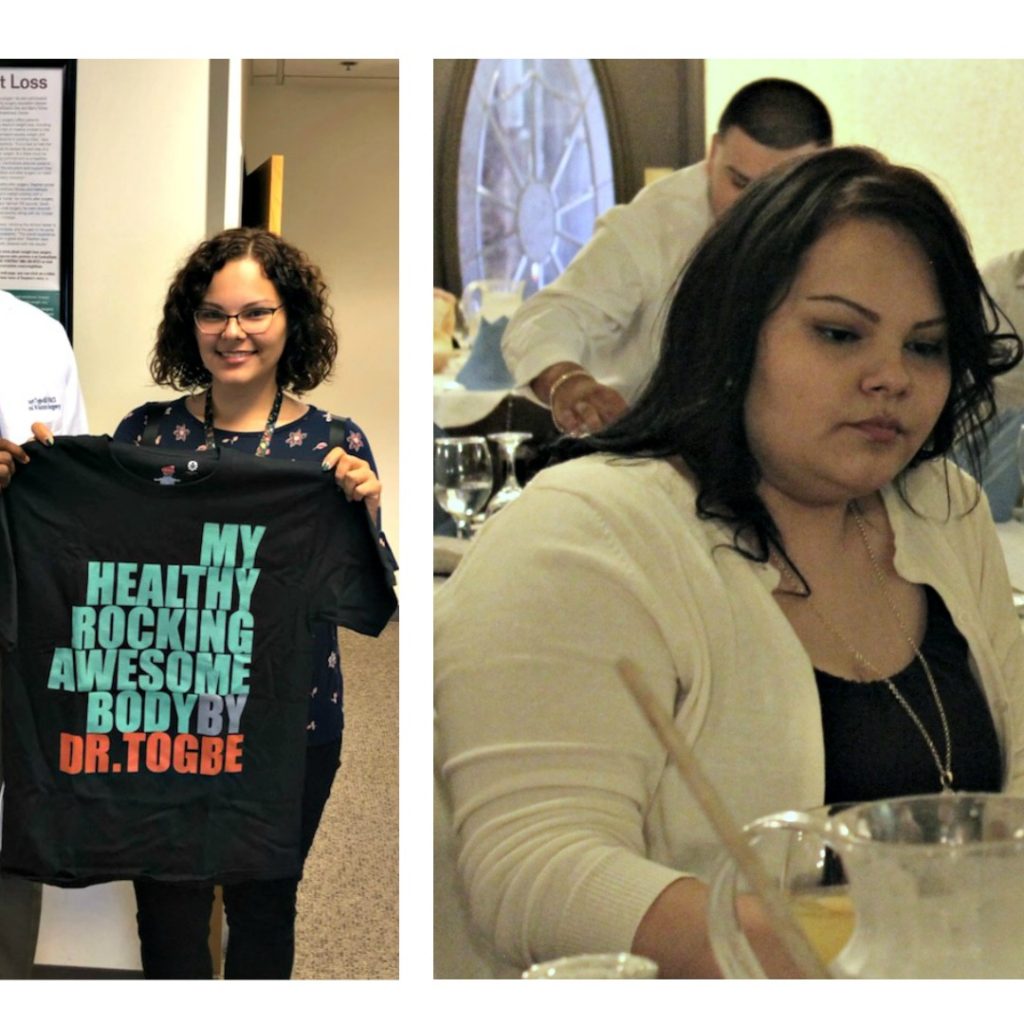 B. Martinez choose to spend her 20’s with a younger look and healthier vibe after losing 80 pounds.
B. Martinez choose to spend her 20’s with a younger look and healthier vibe after losing 80 pounds.
